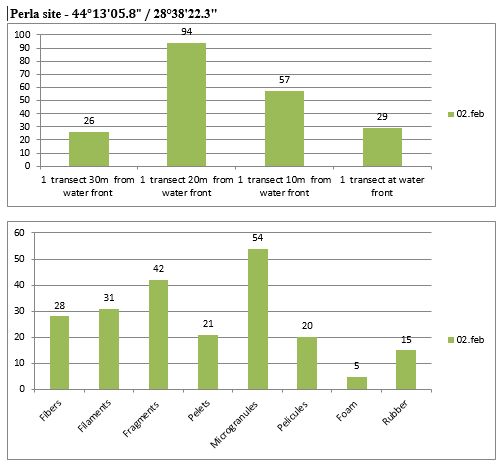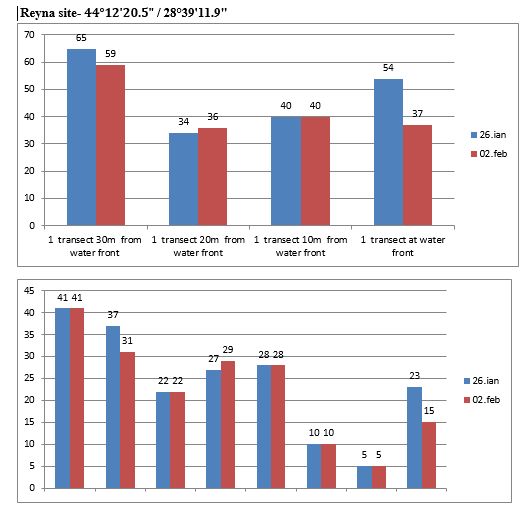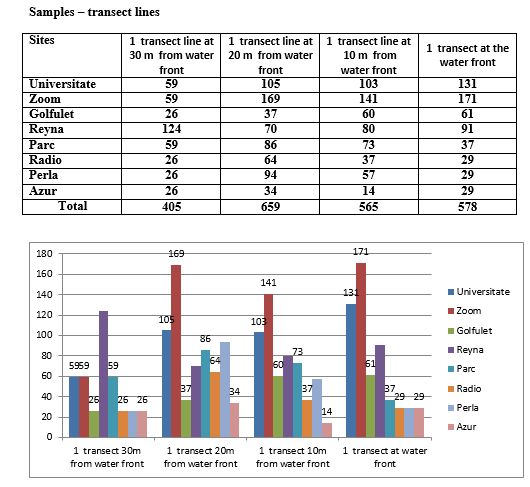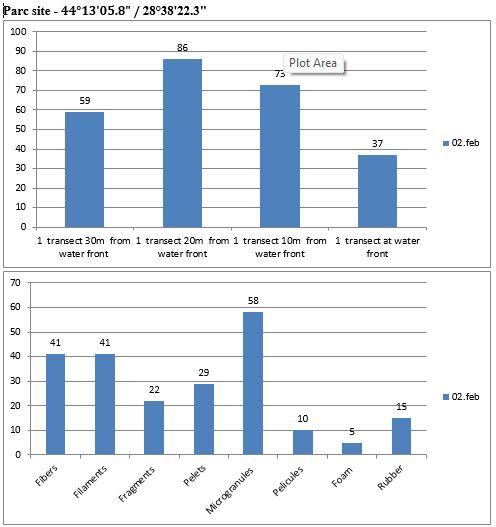Microplastic in the Black Sea
Analysis, research

- 14 water samples and 56 sediment samples were taken (from the water line and from distances of 10m, 20m, 30m from it), in 8 stations at a distance of about 500 m from each other, in 3 days sampling
- In water samples, the highest percentage is represented by microgranules and the lowest by foam and rubber
- The station with the highest frequency of microplastic was Reyna beach. We correlate this aspect with the geo-morphological characteristics of the shore in that area (semi-closed gulf with lower water circulation)
- In 65% of the samples, those taken at a distance of 20 m from the waterline were the most abundant in microplastics
- The conditions determined by the abiotic factors did not significantly influence the distribution of the microplastic in the samples taken
- For the sediment samples, 2014 microplastic elements were found, most on the Zoom beach (semi-closed area) and the fewest on the Azur beach (narrower beach and open shore)
- Microgranules accounted for about 30% of the microplastic found and have the highest abundance, and foam and rubber the lowest abundance of 3%
- 20 mussels were analyzed, with a total biomass of 68 g, being identified over 150 microplastic particles, most of them attached to the byssus filaments and in the gills
- The average size of the microplastic particles was about 0.05-2.5 mm
- We did not identify a specific weight of a color of the microplastic found in the samples.
 |
 |
 |